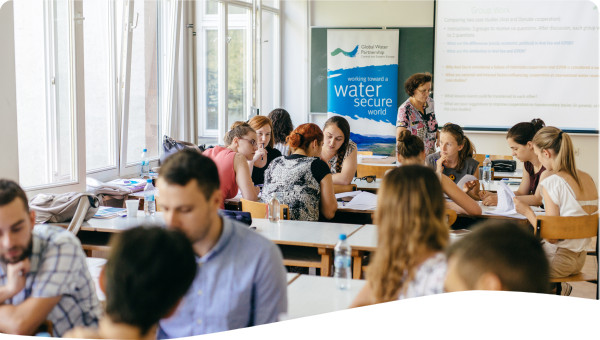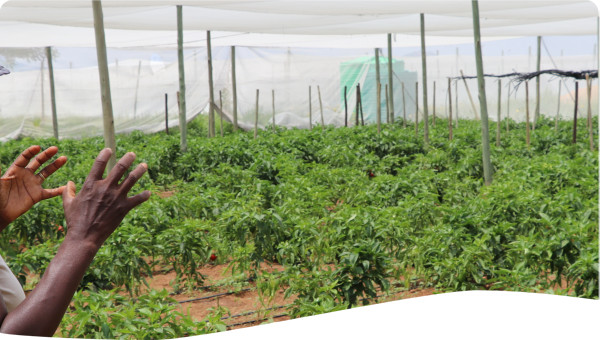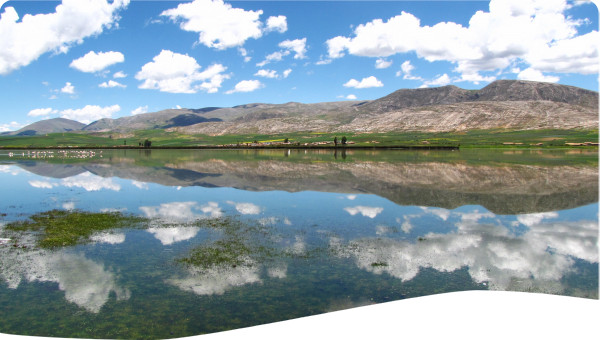The Kigezi Diocese Water and Sanitation Program (KDWSP), along with its partners, has empowered women and youth with essential skills, enabling vital roles in their households and communities. Over 40 women's groups have received training in artisan skills, constructing rainwater harvesting tanks and energy-saving stoves, and thus improving livelihoods, and promoting environmental conservation. Boosting self-confidence has shifted societal perceptions, now entrusting women with projects once reserved for men.
The Kigezi Diocese Water Department (KDWD) was established in 1986 under Kigezi Diocese, Church of Uganda, with a primary goal of addressing water-related challenges, including the lack of access to clean water, waterborne diseases, and the burden of traveling long distances in search of water within the communities of the Diocese. In 1999, the department was renamed Kigezi Diocese Water and Sanitation Programme (KDWSP), and thereafter increased focus was accorded to poverty alleviation, accelerating service delivery through rainwater harvesting technologies training, information/experience dissemination and advocacy. In 2019, KDWSP began implementing disaster risk reduction activities in the Southern Western region of Uganda.
Kigezi Sub-region, situated in South Western Uganda, is one of the most densely populated areas in the country. Kabale District, at the heart of the Diocese (alongside the newly created Rubanda and Rukiga Districts), faces population density challenges, with 401.2 people per square kilometer and a population growth rate of 1.3%. The region's terrain is characterized by steep hills ranging from 1800 to 2500 meters above sea level, featuring V-shaped valleys and undulating landscapes. Intense population pressure has led to scarce and fragmented land, causing widespread poor farming practices, deforestation, and the erosion of contour terraces. These factors, coupled with the challenging topography, result in severe soil erosion, landslides, floods, water source contamination, and depletion, significantly affecting human productivity.
The population in this region predominantly relies on subsistence agriculture. Notably, the primary water sources in Kigezi Sub-region include springs, lakes, rainwater, rivers, and streams. Due to land scarcity, flooding, and mudslides, communities are constructing settlements and opening farmlands on hilltops, which are more affordable but susceptible to soil erosion. Inefficiency in farming methods further exacerbates soil erosion, negatively impacting groundwater recharge and causing acute water stress. In some communities, residents must travel long distances to fetch water from valleys, posing challenges for proper sanitation practices. Additionally, it is challenging to engage in water-dependent economic activities on the hill slopes, such as cattle zero-grazing, piggery, brewing, and nursery bed establishment.
In the valleys, communities have encroached on wetlands for crop farming, primarily growing vegetables and potatoes, as well as for grazing. These activities contaminate water sources and disrupt groundwater recharge processes. Furthermore, extensive environmental degradation occurs through activities such as charcoal burning, logging, and firewood collection.
With the support of TearFund Switzerland, TearFund UK, and TearFund Netherlands, KDWSP has been making significant contributions since 1986. They have constructed 56 Gravity Flow Schemes, 1080 protected springs, and 242 Institutional Rainwater Tanks (ranging from 20,000 to 100,000 liters), including both surface and underground tanks. Additionally, they have implemented 2759 Ferrocement Tanks (each with a capacity of 4000 liters), 470 Rainwater Jars (1500 liters), 13410 Rainwater Jars (420 liters), and 660 Bio-sand filters. A total of 496 artisans have received training in various rainwater harvesting technologies, alongside the creation of 5300 Sanitary Plats and 5300 Tippy Taps distributed to communities.
The program's diversified efforts extend beyond infrastructure. Over the past seven years, it has initiated disaster risk reduction interventions. Through extensive training, both men and women have acquired skills in water tank construction, hygiene, sanitation, family planning, food and nutrition, and environmental protection.
Particularly noteworthy is the empowerment of women and youth in the construction of household and institutional energy-saving stoves, serving as both a livelihood source and an environmental conservation measure. Women have played pivotal roles in the initial planning of Gravity Flow Schemes (GFS) since water provision predominantly falls under their responsibilities in households. They are also key mobilizers within Water and Sanitation (WATSAN) committees, actively participating in the formulation of bylaws regarding household contributions (user fees) and the management of these fees. The community's trust in women's transparency in these roles is evident. Additionally, women often take charge of maintaining sanitation around GFS facilities.
Most GFS have been constructed on community-offered land, with users contributing locally available materials during construction. User fees are generally affordable, and community ownership developed during the construction process has protected the infrastructure from vandalism.
KDWSP operates a rainwater harvesting training center, facilitated by land provided by the Government of Uganda. This center offers training in various rainwater harvesting technologies, accompanied by practical construction training in the field. Training is open to individuals within and outside the region. Trainees are supervised to construct at least four tanks before being allowed to work independently. Exceptional trainees may even construct tanks on behalf of the program.
KDWSP has also embraced inclusion in its initiatives. Due to high demand for rainwater harvesting, especially given the hilly terrain of the region, the program began collaborating with trained women's groups in Kabale District in 2004 to construct water tanks on a commercial basis. Groups like Hamurambi Bakyala Nyekundire of Kagarama and Rubirizi Bwayu have not only built tanks for their members but also for other clients upon request, at a cost. Training sessions in 2004 resulted in the construction of four tanks as demonstration sites, supervised by program staff. Subsequently, the groups constructed 80 tanks for all their members in small sub-groups. Individual owners provided the necessary building materials. Since then, a total of 707 tanks have been constructed across Kabale, Gulu, Isingiro, Kibaale, and Mbale Districts.
Economically, improved water availability, particularly benefiting women, has catalyzed intensive livestock management practices such as cattle zero grazing, commercial poultry, and piggery. These endeavors, which demand substantial water resources, have expanded income-generating opportunities within the community. Additionally, in Kabale, where cash crops like vegetables are a significant part of the economy, timely preparation of nursery beds before the rainy season is crucial for farmers. However, due to the hilly terrain of most homesteads, maintaining seed beds posed a water supply challenge. The gravity scheme has alleviated this hurdle by allowing women to establish seed beds closer to their homes, ensuring timely transplanting. Furthermore, men are now able to engage in brick-making activities in the hills, utilizing the same water resources.
Sorghum porridge brewing is a prevalent activity in the catchment area, primarily undertaken by women for domestic consumption and as a substantial income source. To initiate the fermentation process, sorghum must be soaked in water for several days. Previously, women had to transport the sorghum to streams in the valleys, risking accidental spills.
KDWSP trained the Hamurambi Bakyala Nyekundire of Kagarama and the Rubirizi Bwayu Women groups in rainwater harvesting tank construction in 2004. Post-training, they constructed tanks for all group members, with owners providing necessary building materials. Subsequently, they have undertaken tank construction for clients upon request, generating income. Notably, they were contracted by the Kigezi Diocese Water and Sanitation Program to build 60 tanks for vulnerable households. The Bwayu women group was also contracted to construct 40 tanks by the Kigezi Diocese, having completed 15 tanks by the time of this data survey. The income earned from these endeavors has allowed group members to save regularly, thereby enhancing household liquidity.
The provision of accessible safe water to communities through Gravity Flow Schemes (GFS) and Rainwater Harvesting has yielded various gender-specific economic and social impacts. Most notably, it has empowered women and girls to meet their practical gender needs by providing easy access to water for domestic chores predominantly performed by them, such as washing, cooking, and cleaning. Accessible water has substantially reduced the labor involved in fetching it. In the case of Kasheregyenyi WATSAN Committee, previously, the 15 households accessing the Kasheregyenyi tap stand had to fetch water from a distant valley, crossing the busy Kabale-Katuna highway, covering a distance of 1-2 kilometers. This exposed them to the high risk of accidents. Poor access to improved water sources has also been linked to gender-based violence, including rape, defilement, and domestic abuse. The risk of such violence, especially against women and girls, was significantly reduced by the Nkamiro GFS, as it allowed for access to water within the settled environment, minimizing the need to venture into isolated areas like valleys and remote crop gardens. The long journeys to wells often led to unwanted teenage pregnancies, a problem that has seen a significant reduction.
The program's emphasis on empowering women with skills and opportunities, such as rainwater harvesting and livestock management, has not only improved their economic status but also fostered positive social and gender dynamics within the community. This highlights the pivotal role of women in driving community development when given the necessary tools and support.
The success of the program was closely tied to community ownership and collaboration. Engaging local communities in decision-making, involving them in project implementation, and utilizing locally available resources have contributed to the sustainability and effectiveness of the KDWSP water and sanitation initiatives.
Implementing water systems that serve multiple purposes, such as domestic use, livestock management, and agricultural activities, can significantly enhance livelihoods and reduce the burden on community members, particularly women and girls. These integrated systems can address various needs and lead to economic and social improvements.
 Case studies
Case studies


